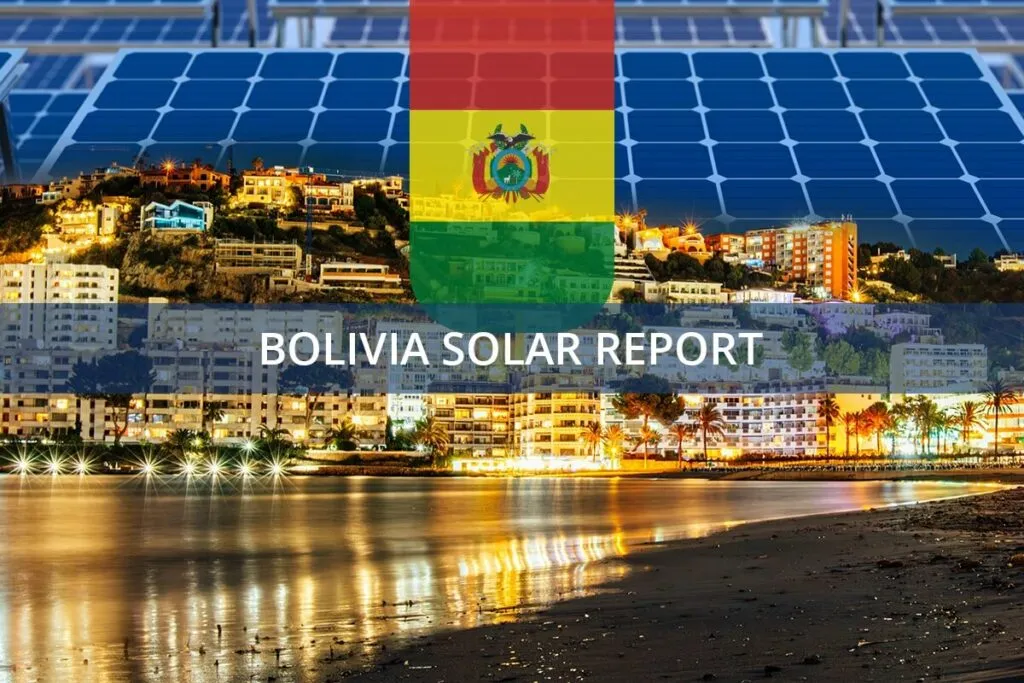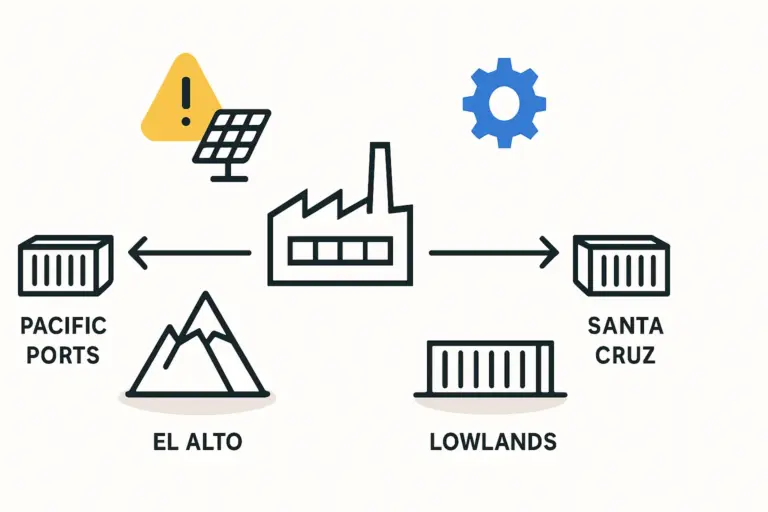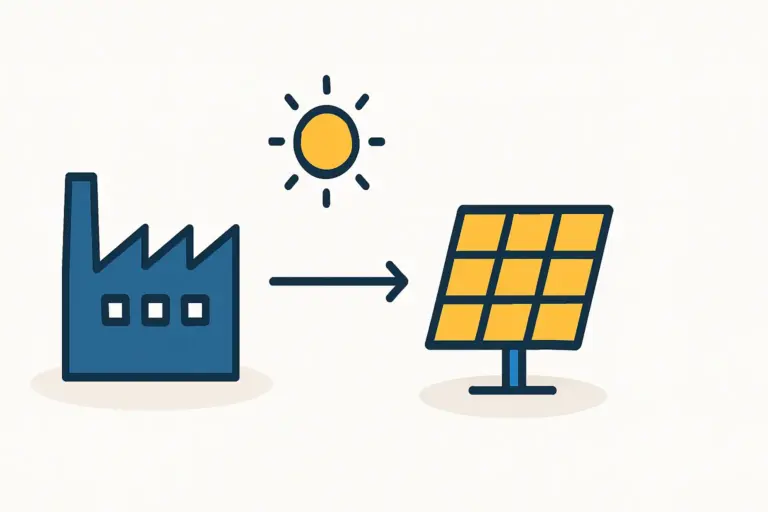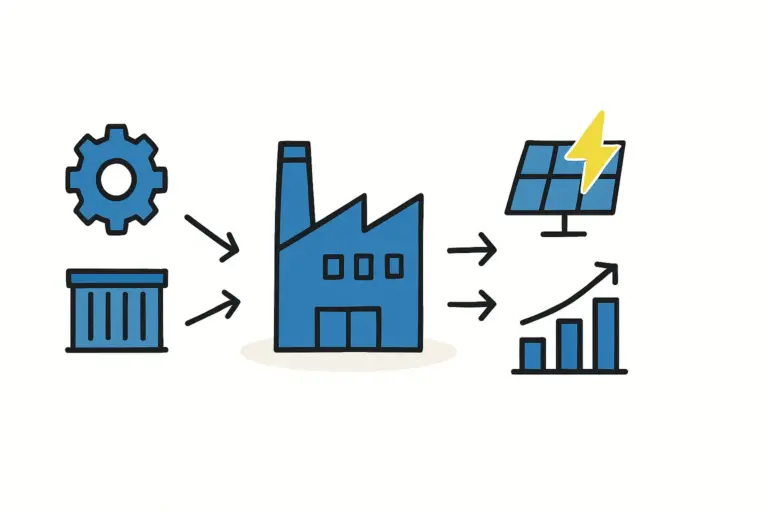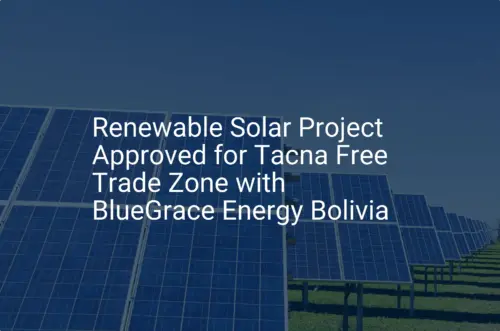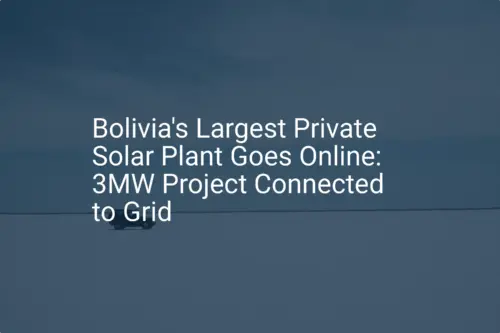For any entrepreneur entering the solar manufacturing sector, identifying a stable, large-scale customer is a cornerstone of a successful business plan. In Bolivia, a country with ambitious renewable energy goals, the state-owned utility, Empresa Nacional de Electricidad (ENDE), represents just such an opportunity.
Becoming a strategic supplier to a national entity, however, is not a simple transaction. It’s a complex undertaking that demands technical excellence, strategic patience, and a deep understanding of national priorities.
This guide lays out the landscape of partnering with ENDE, explaining the procurement pathways, key requirements, and strategic considerations for new solar module manufacturers aiming to contribute to Bolivia’s energy future.
Table of Contents
Understanding ENDE’s Role in Bolivia’s Energy Transition
Empresa Nacional de Electricidad is the central player in Bolivia’s electricity sector, responsible for generation, transmission, and distribution. More importantly, ENDE is tasked with executing the government’s strategic energy projects, particularly those outlined in the National Economic and Social Development Plan (PDES).
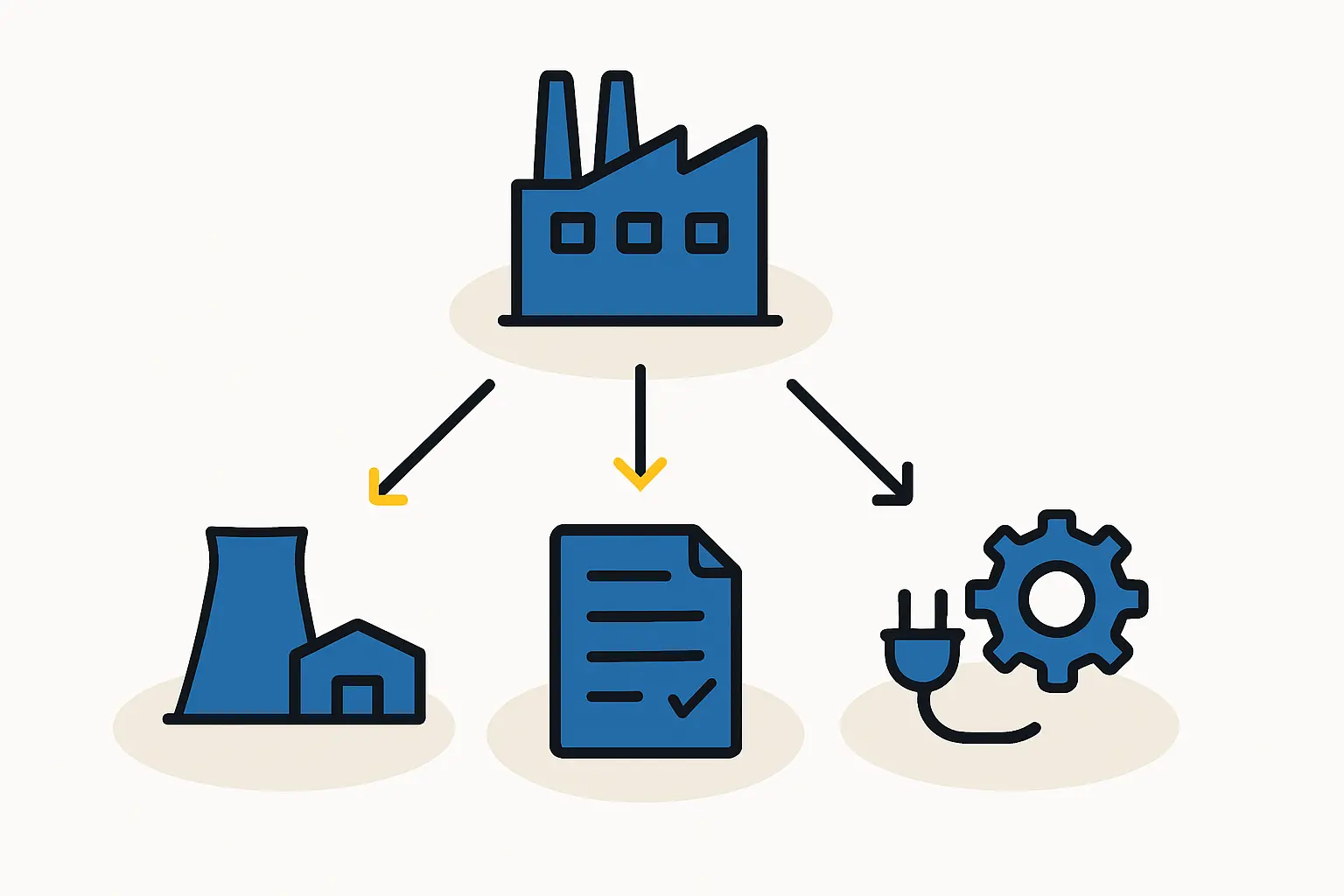
Under this mandate, ENDE has spearheaded the development of Bolivia’s largest solar installations, including:
-
The Oruro Solar Plant: A flagship project with a capacity of 100 MW, demonstrating the scale of the country’s commitment.
-
The Yunchará Solar Plant: A 5 MW facility in Tarija, highlighting the focus on bringing power to different regions.
-
The Uyuni Solar Plant: A 60 MW project that leverages the high solar irradiation of the Bolivian Altiplano.
For a new manufacturer, this context is critical. ENDE is not merely a buyer; it is the primary institutional off-taker for utility-scale solar projects. Aligning with ENDE’s project pipeline is the most direct route to securing high-volume, long-term contracts in the Bolivian market.
Entrepreneurs exploring this path will find that a comprehensive understanding of how to start a solar panel manufacturing business is a crucial first step before engaging with state-level partners.
The Pathways to Becoming an ENDE Supplier
Engaging with a state-owned enterprise involves navigating formal, regulated procedures. Manufacturers must be prepared for a structured procurement process designed to ensure transparency, technical compliance, and value for the state.
Public Tenders (Licitaciones Públicas)
This is the most common and transparent method ENDE uses to procure goods and services for its large-scale projects. The process is multi-staged and meticulously documented.
The public tender process typically includes:
-
Public Announcement: Tenders are announced through official government channels and publications.
-
Pre-qualification: Interested companies must submit documentation proving their technical capacity, financial stability, and legal standing.
-
Submission of Bids: Qualified bidders submit two separate proposals: a technical bid detailing product specifications, certifications, and delivery plans, and an economic bid outlining the price.
-
Evaluation: ENDE’s technical committees evaluate the bids against a predefined set of criteria. The technical proposal is often weighed heavily to ensure product quality and reliability.
-
Contract Award: The contract is awarded to the bidder who best meets the combined technical and economic requirements.
Direct Contracting and Strategic Alliances
In specific circumstances, such as projects deemed a high national priority or those requiring unique technological solutions, ENDE may engage in direct contracting. This approach is less common for new market entrants and is typically reserved for established partners or government-to-government agreements. However, building a reputation through successful tender participation can position a company for future strategic alliances.
Key Requirements for Aspiring Suppliers
ENDE’s responsibility for national infrastructure means its supplier standards are exceptionally high. New manufacturers must be prepared to meet and document their compliance with stringent international and local criteria.
Technical and Quality Certifications
There is no room for compromise on quality. Solar modules supplied for national projects must be demonstrably durable, reliable, and safe.
-
IEC Standards: Compliance with international standards is mandatory. Key certifications include IEC 61215 (for design qualification and type approval) and IEC 61730 (for safety qualification).
-
Third-Party Validation: These certifications must be issued by accredited, independent laboratories. A manufacturer’s internal testing is not a substitute. The process for obtaining IEC certification for solar modules should be initiated early in the factory planning phase.
Financial Stability and Production Capacity
ENDE must be confident that its suppliers can deliver large quantities of modules on a strict schedule. Aspiring partners will need to demonstrate:
-
A Solid Financial Position: Audited financial statements and proof of access to capital are often required.
-
Verifiable Production Capacity: The factory’s planned output (in MW/year) must be sufficient to meet the demands of a large-scale project. The initial solar panel manufacturing plant cost and the operational budget must realistically support these production targets.
Understanding Local Content and Economic Development Goals
While public tenders are officially open to international competition, proposals that align with Bolivia’s national development goals often have a competitive edge. A manufacturer that can demonstrate a commitment to the local economy—through local employment, technology transfer, or partnerships with Bolivian firms—presents a more compelling case. This is a crucial factor in regions where economic development is as important as energy generation.
Strategic Considerations for Market Entry
Beyond meeting the formal requirements, a successful approach to partnering with ENDE involves strategic positioning and long-term thinking.
Building Local Relationships
Navigating the administrative and legal landscape in Bolivia is significantly easier with local expertise. Establishing a local office, hiring Bolivian staff, or partnering with a reputable local firm is not just a logistical advantage—it signals a serious, long-term commitment to the market.
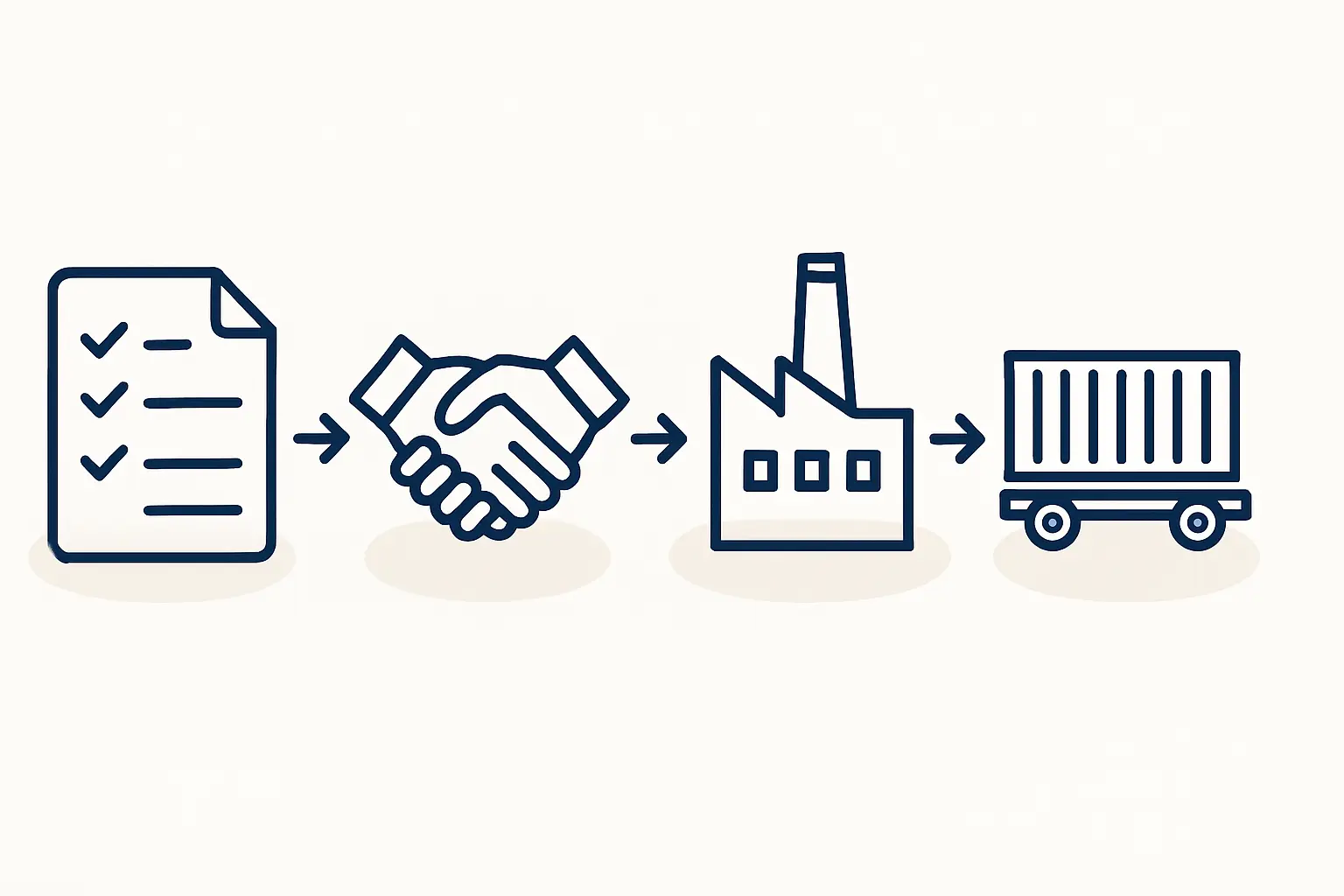
Aligning with National Development Priorities
Frame your business proposal not just as a sale of solar panels but as a contribution to Bolivia’s strategic objectives. These include energy sovereignty, rural electrification, and the diversification of the economy away from fossil fuels. Articulating this alignment in your proposals can differentiate your company from purely transactional suppliers.
Preparing for a Long-Term Engagement
Securing a contract with ENDE marks the beginning of a long-term relationship. The supplier is expected to provide warranties, technical support, and potentially replacement parts for the lifetime of the project, which can be 25 years or more. A well-designed turnkey solar module manufacturing line is essential not only for initial production but also for ensuring the long-term availability of consistent, high-quality products.
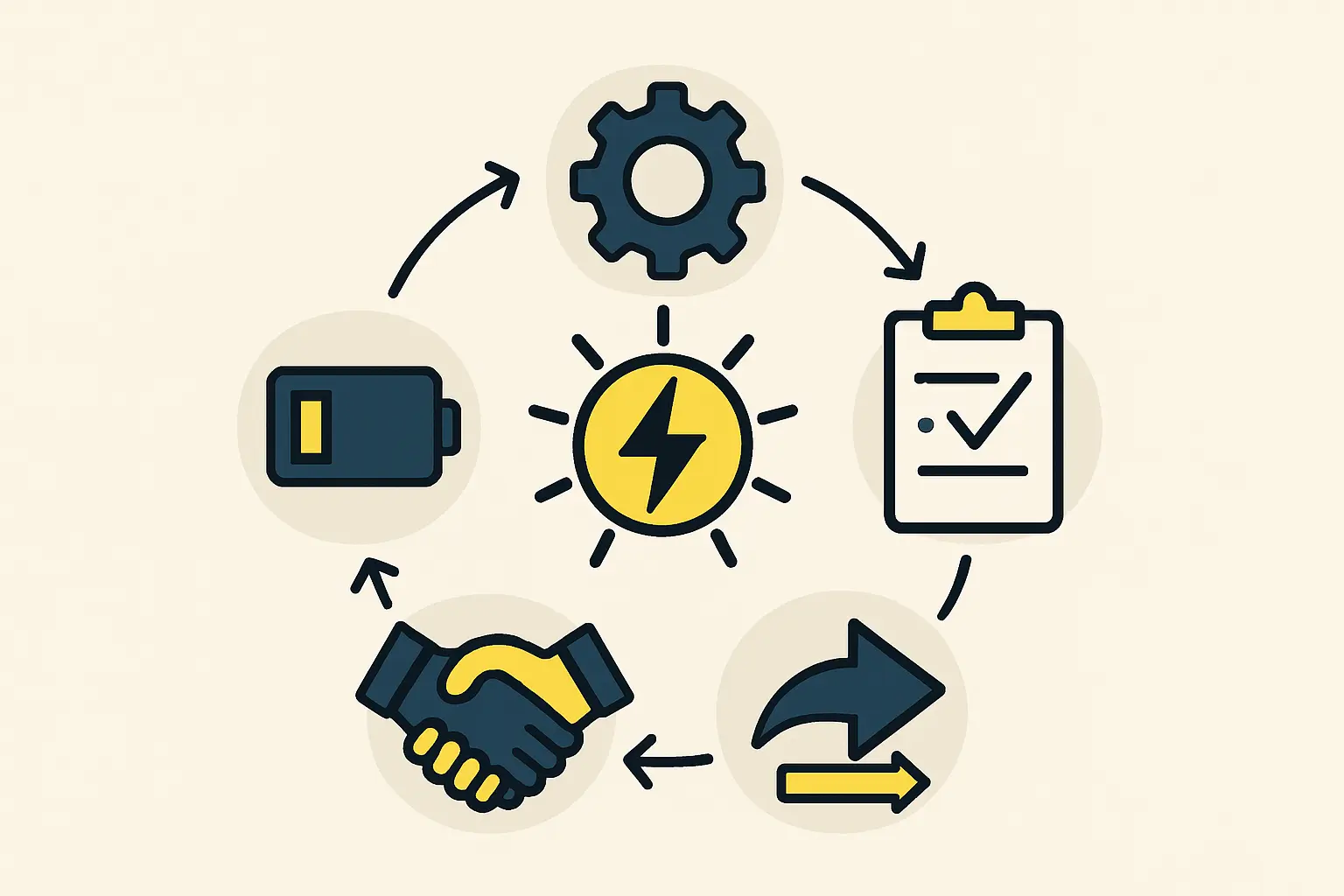
Frequently Asked Questions (FAQ)
Does ENDE favour local manufacturers over international ones?
Officially, public tenders are designed to be competitive and open. However, a local presence and demonstrable contributions to the national economy are significant differentiating factors. A foreign-owned company with a manufacturing plant in Bolivia is often viewed very favorably.
What is the typical size of a solar project tendered by ENDE?
Project sizes vary, but utility-scale developments are often in the 50 MW to 100 MW range. This requires a supplier capable of producing and delivering hundreds of thousands of solar modules within a specific project timeline.
Is fluency in Spanish necessary to do business with ENDE?
Yes. All official tender documents, legal contracts, and formal communications will be in Spanish. Fluent Spanish-speaking personnel or a reliable local partner are essential for clear communication and navigating the legal framework.
How can a new company without a long track record compete?
A new company can compete by demonstrating excellence in three key areas: superior and certified product technology, strong financial backing from credible institutions, and a meticulously prepared business and operational plan. Based on experience from J.v.G. turnkey projects, partnering with an established engineering firm can also provide the necessary technical credibility to overcome a lack of corporate history.
Conclusion and Next Steps
Partnering with ENDE offers a pathway to becoming a key player in one of Latin America’s growing solar markets. This opportunity, however, is reserved for manufacturers who approach the market with a strategic, long-term perspective. Success depends on an unwavering commitment to quality, a deep understanding of the formal procurement process, and an alignment with Bolivia’s national development goals.
Navigating this landscape successfully requires detailed planning, from initial factory design to final product certification. Resources such as the pvknowhow.com e-course offer entrepreneurs a structured framework for this complex but rewarding journey.

